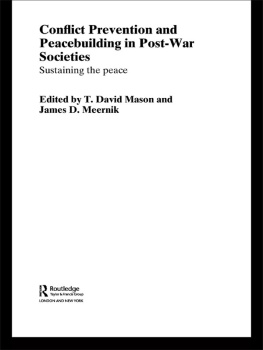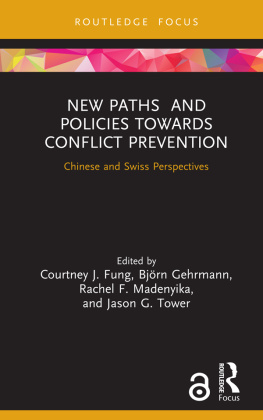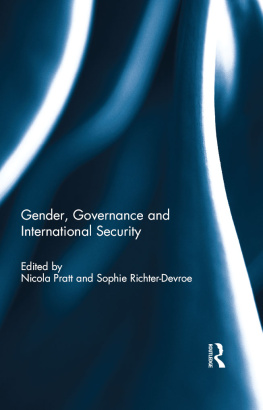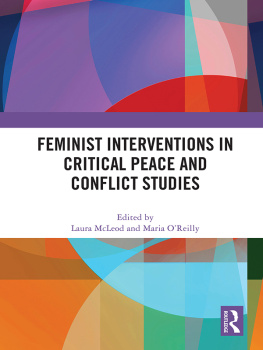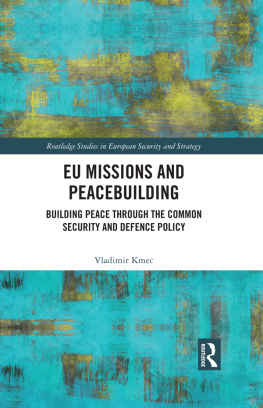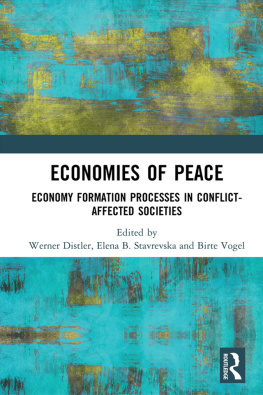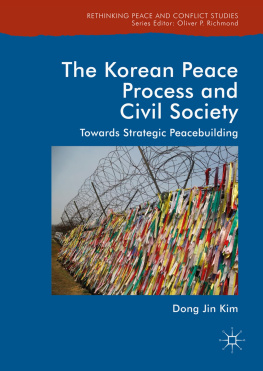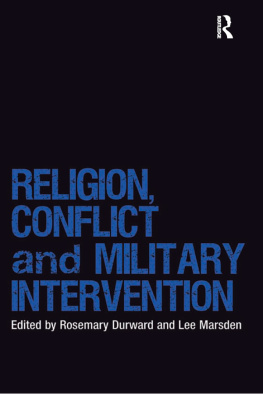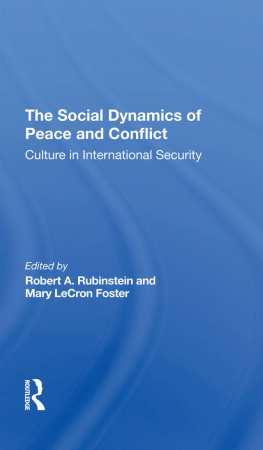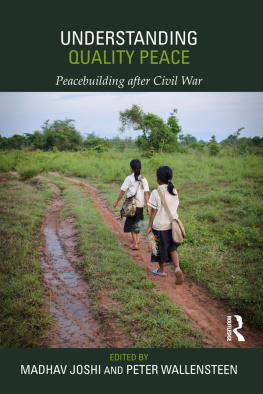Conflict Prevention and Peacebuilding in Post-War Societies
Conflict Prevention and Peacebuilding in Post-War Societies provides an overview of the costs, benefits, consequences, and prospects for rebuilding nations emerging from violent conflict. The rationale for this comes from the growing realization that, in the post-Cold War era and in the aftermath of 9-11, our understanding of conflict and conflict resolution has to include consideration of the conditions conducive to sustaining the peace in nations torn by civil war or interstate conflict.
First, whereas wars between sovereign nations had dominated international politics for the previous 300 years, civil wars within nations revolutions, secessionist wars, ethnic conflicts, and terrorism have become the most frequent and deadly forms of armed conflict since the end of World War II. Second, the Third World Asia, Africa, Latin America, and the Middle East has become the site of most of the armed conflict in the last half century. Third, not only has civil war become the dominant conflict modality in the international community but once it occurs in a nation, it is highly likely to recur at some time in the future. Fourth, while the end of the Cold War has not significantly diminished the frequency and destructiveness of war, the international community has compiled an unprecedented record of mediating peaceful settlements to a number of protracted conflicts in the Third World.
These trends define a new agenda for the international community in the new century: how do we sustain the peace in nations previously torn by civil war? Each of the chapters here analyzes the prospects for building a sustainable peace from a number of different perspectives, examining: the role of economic development, democratization, respect for human rights, the potential for renewal of conflict, the United Nations, and other critical topics. In an age when nation-building is once again on the international agenda, and scholars as well as policymakers realize both the tremendous costs and benefits in fostering developed, democratic, peaceful and secure nations, the time has truly come for a book that integrates all the facets of this important subject.
T. David Mason is Johnie Christian Family Peace Professor, University of North Texas. He is the author of Caught in the Crossfire: Revolution, Repression, and the Rational Peasant (2003) and (co-edited with Abdul M. Turay), Japan, NAFTA and Europe: Trilateral Cooperation or Confrontation? (1994). James D. Meernik is Assistant Professor in the Department of Political Science, University of North Texas. He is the author of The Political Use of Military Force in US Foreign Policy (2004).
Contemporary security studies
- NATOs Secret Army
Operation Gladio and terrorism in Western Europe
Daniel Ganser
- The US, NATO and Military Burden-Sharing
Peter Kent Forster and Stephen J. Cimbala
- Russian Governance in the Twenty-First Century
Geo-strategy, geopolitics and new governance Irina Isakova
- The Foreign Office and Finland 19381940
Diplomatic sideshow
Craig Gerrard
- Rethinking the Nature of War
Edited by Isabelle Duyvesteyn and Jan Angstrom
- Perception and Reality in the Modern Yugoslav Conflict
Myth, falsehood and deceit 19911995
Brendan OShea
- The Political Economy of Peacebuilding in Post-Daytona Bosnia
Tim Donais
- The Distracted Eagle
The rift between America and old Europe
Peter H. Merkl
- The Iraq War
European perspectives on politics, strategy, and operations
Edited by Jan Hallenberg and Hkan Karlsson
- Strategic Contest
Weapons proliferation and war in the greater Middle East
Richard L. Russell
- Propaganda, the Press and Conflict
The Gulf War and Kosovo
David R. Willcox
- Missile Defence
International, regional and national implications
Edited by Bertel Heurlin and Sten Rynning
- Globalising Justice for Mass Atrocities
A revolution in accountability
Chandra Lekha Sriram
- Ethnic Conflict and Terrorism
The origins and dynamics of civil wars
Joseph L. Soeters
- Globalisation and the Future of Terrorism
Patterns and predictions
Brynjar Lia
- Nuclear Weapons and Strategy
The evolution of American nuclear policy
Stephen J. Cimbala
- Nasser and the Missile Age in the Middle East
Owen L. Sirrs
- War as Risk Management
Strategy and conflict in an age of globalised risks
Yee-Kuang Heng
- Military Nanotechnology
Potential applications and preventive arms control
Jrgen Altmann
- NATO and Weapons of Mass Destruction
Regional alliance, global threats
Eric R. Terzuolo
- Europeanisation of National Security Identity
The EU and the changing security identities of the Nordic states
Pernille Rieker
- Conflict Prevention and Peacebuilding in Post-War Societies
Sustaining the peace
Edited by T. David Mason and James D. Meernik
- Controlling the Weapons of War
Politics, persuasion, and the prohibition of inhumanity
Brian Rappert
Conflict Prevention and Peacebuilding in Post-War Societies
Sustaining the peace
Edited by T. David Mason and James D. Meernik
First published 2006
by Routledge
2 Park Square, Milton Park, Abingdon, Oxon OX14 4RN
Simultaneously published in the USA and Canada
by Routledge
270 Madison Ave, New York, NY 10016
This edition published in the Taylor & Francis e-Library, 2006.
To purchase your own copy of this or any of Taylor & Francis or Routledges collection of thousands of eBooks please go to www.eBookstore.tandf.co.uk.
Routledge is an imprint of the Taylor & Francis Group
2006 Selection and editorial matter, T. David Mason and James D. Meernik; individual chapters, the contributors
All rights reserved. No part of this book may be reprinted or reproduced or utilized in any form or by any electronic, mechanical, or other means, now known or hereafter invented, including photocopying and recording, or in any information storage or retrieval system, without permission in writing from the publishers.
British Library Cataloguing in Publication Data
A catalogue record for this book is available from the British Library
Library of Congress Cataloging in Publication Data
A catalog record for this book has been requested
ISBN 0-415-70213-5
Figures
Mean polity democracy scores prior to a US use of force at time t
Human rights abuses leading up to a US use of force at time t
Human rights practices after US use of force, 19761996
Human rights practices after US use of force: comparison with a control group
Racial differences in overall levels of reconciliation
Tables
The frequency of civil war occurrences in nations, 19442001
Civil war settlement types, 19451999
Trends in means of ending civil wars, 19451999
Cases of crisis/post-conflict phases of intrastate disputes, 1970present

